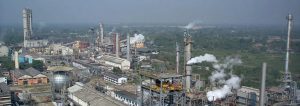
Time charter agreement for ammonia powered gas carrier
Yara Clean Ammonia has signed a time-charter contract with Nippon Yusen Kabushiki Kaisha (NYK) for an ammonia-fuelled medium gas carrier, to be delivered in November 2026. Medium gas carriers are the most popular type of vessel for international shipping of ammonia, and Yara and NYK have been studying the possibilities of running them off ammonia fuel since 2021. Yara Clean Ammonia operates the largest global ammonia network with 15 ships and has, through Yara, access to 18 ammonia terminals and multiple ammonia production and consumption sites across the world. Yara says that use of an AFMGC will contribute to reducing GHG emissions from marine transportation and developing an ammonia supply chain by providing a more environment-friendly means of ammonia transport as demand grows for ammonia use in the power sector, for marine fuel, and the like.






